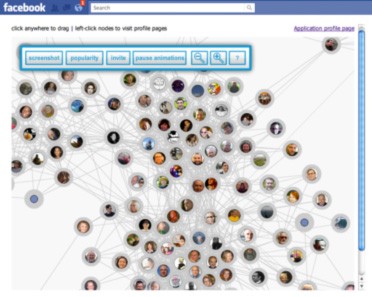By Walter Pacheco
A business reporter on deadline a while back asked if I knew anyone who worked at a local Darden restaurant that she could interview for a story. I didn’t and she was in a crunch.
Her options: Stand in front of a Red Lobster or Olive Garden in the Florida heat and wait for an employee to step outside at the end of their shift or during a smoking break. It’s an uncomfortable encounter, but we’ve all soldiered through it when we’re pressed to meet a deadline.
I offered her an easier, more efficient solution — turn to Facebook’s Graph Search.
Facebook’s new feature, which finished rolling out in July to all users whose language is set to American English, is a virtual Rolodex packed with millions of potential sources. Unlike a search on Google that returns links to possible matches based on keywords, Graph Search returns answers to specific queries based on their member profiles, likes, friends and photos.
For example: I suggested the reporter search for “People who work at Darden Restaurants in Orlando.” The search returned multiple pages of Orlando-area Facebook users who listed the restaurant operator as their employer.
I told her to send out a couple of friendly messages to those Facebook users, explaining that she is a reporter working on a story on deadline and looking to interview someone. While users may not always respond to the request, you might still gather some information.
Earlier this year, I needed to write a short story about some issue at video-game giant EA Sports in metro Orlando. Although I had an excellent relationship with the company, I didn’t want to reach out through the usual channels of public relations or drive to their headquarters.
So I queried “People who work at EA Electronic Arts in Orlando Florida” on Facebook’s Graph Search. The search returned software engineers, character artists, animators, producers and others – including those who no longer worked at the company. I messaged a few and they all spoke on and off the record. It learned great background information, and more importantly, I started conversations with those sources.

Another social media network vastly untapped by many business reporters is Google Plus. Some detractors label the Internet search giant’s site of 100 million active monthly users a “ghost town.” Nielsen Media Research recently showed that Google Plus users in March spent less than 7 minutes on the site, compared to the more than six hours users spent on Facebook.
Those metrics paint a picture of a network without interaction, but statistics can be deceiving.
My strategy for crowdsourcing on Google Plus is to find “communities” populated by hundreds, if not, thousands of members who share a common interest and post queries on their pages. I often ask questions in the Orlando community of 322 members and they answer back. They know I’m a journalist and they can see my news activity on my page.
Other communities I often plumbed for sources: Tech News! (35,931 members) and Social Media Strategy (36,956 members). Some communities, like Financial Literacy, consist of only 485 members, but I often find a banking expert or regular person interested in finances who is willing to discuss the latest fiscal catastrophe.
While nothing replaces the wealth of information gathered during man on the street interviews or speaking with a source at the scene, using the newest in social media tools is certainly an ace up your sleeve when you’re in a crunch.
GUEST POST: Walter Pacheco started his journalism career as a reporter at the Miami Herald and then moved to Orlando. He spent 12 years at the Orlando Sentinel, covering government, business and political issues affecting the growing Hispanic community, breaking news and technology. He is currently an editor for Debt.org.
You can find more like this on Debt.org’s Facebook Page.











